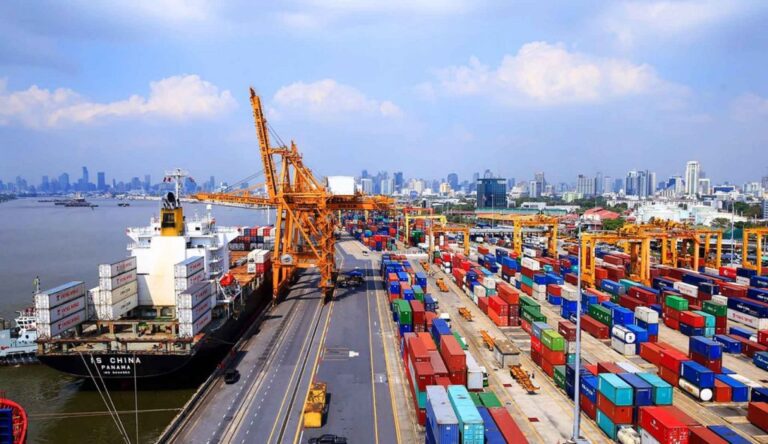Unlocking Financial Freedom: Opening a Bank Account in Thailand for Expats Made Easy
Opening a bank account in Thailand is a crucial step for expats seeking financial stability and convenience during their stay. With various account options available, individuals must understand the requirements and choose the right bank to ensure a smooth process.
This article aims to guide expats through the necessary steps, provide tips for effective account management, and ultimately unlock financial freedom. By offering valuable insights and addressing potential concerns, expats will be equipped to open a bank account in Thailand with confidence.
Key Takeaways
- There are various types of bank accounts available in Thailand for expats, including savings accounts, current accounts, fixed deposit accounts, and foreign currency accounts.
- Expats need to meet certain requirements to open a bank account in Thailand, such as having a valid passport, visa, and work permit, as well as providing proof of address and making a minimum deposit.
- It is important for expats to choose the right bank by comparing major banks in Thailand, considering fees and charges, and evaluating the quality of customer service and convenience of online banking.
- To effectively manage their bank accounts, expats should maintain the minimum balance, avoid overdrawing the account, keep track of transactions and balances, and utilize online banking services.
Types of Bank Accounts Available for Expats in Thailand
There are several types of bank accounts available for expats in Thailand, each catering to different financial needs and preferences.
The first type is a savings account, which offers interest rates on deposited amounts. This is a good option for expats looking to save and grow their money.
The second type is a current account, which allows frequent deposits and withdrawals. This is ideal for expats who need easy access to their funds for day-to-day expenses.
Another option is a fixed deposit account, which offers a fixed interest rate for a specific period. This is suitable for expats who want to earn higher interest on their savings over a longer period.
Lastly, there are foreign currency accounts, which allow deposits and withdrawals in foreign currency. This is beneficial for expats who receive income or hold assets in a different currency.
When choosing a bank, it is important to compare the fees and charges associated with opening and maintaining an account. Good customer service, online banking, and mobile apps can also enhance the banking experience.
To open a bank account in Thailand, expats need to provide a valid passport, visa, work permit (if applicable), and proof of address. Most banks also require a minimum deposit to open an account.
Once the account is open, it is important to manage it effectively by maintaining the minimum balance, avoiding overdrawing, and utilizing online banking services for convenience.
Opening a bank account in Thailand can be a straightforward process, and with the right knowledge and preparation, expats can unlock financial freedom and smoothly manage their finances in the country.
Requirements for Opening a Bank Account in Thailand as an Expat
Prepare the necessary documents, such as a valid passport, visa, work permit (if applicable), and proof of address, to meet the requirements for opening a bank account in Thailand as an expat. These documents are essential for verifying your identity, legal status, and address.
Additionally, most banks in Thailand require a minimum deposit to open an account. It is important to compare major banks in Thailand, such as Bangkok Bank and Kasikornbank, to find the one that suits your needs. Consider the fees and charges associated with opening and maintaining an account, and prioritize good customer service for issue resolution and assistance.
Online banking and mobile apps can provide convenience for managing your finances. By fulfilling these requirements and choosing the right bank, you can easily open a bank account in Thailand as an expat and enjoy the benefits of convenient financial management.
Choosing the Right Bank for Expats in Thailand
When selecting a bank for expats in Thailand, it is crucial to consider factors such as reputation, services offered, and accessibility.
Major banks in Thailand, such as Bangkok Bank and Kasikornbank, are widely recognized and have a strong reputation in the industry. It is important to compare the fees and charges associated with opening and maintaining an account, as these can vary between banks.
Good customer service is also essential for issue resolution and assistance. Additionally, the availability of online banking and mobile apps can provide convenience for managing finances.
Steps to Open a Bank Account in Thailand as an Expat
To successfully open a bank account in Thailand as an expat, you will need to visit the bank of your choice and inform the staff about your intention to open an account. The process can be made easy by following these steps:
- Prepare necessary documents, including passport, visa, work permit, and proof of address.
- Fill out the bank's application form with accurate information.
- Submit required documents, including passport, visa, work permit, and proof of address.
- Make the minimum deposit required by the bank to open the account.
By following these steps, you can ensure a smooth and hassle-free process of opening a bank account in Thailand.
It is important to have all the necessary documents ready and to provide accurate information to the bank. Opening a bank account in Thailand as an expat can provide you with convenience and accessibility for managing your finances while enjoying your time in the country.
Tips for Managing Your Bank Account in Thailand as an Expat
With the right approach and careful financial planning, expats can effectively manage their bank account in Thailand. Here are some tips to help expats navigate the process and make the most of their banking experience.
- First, it is important to maintain the minimum balance required by the bank to avoid penalties.
- Overdrawing the account should be avoided to prevent additional fees.
- Keeping track of transactions and account balances is crucial to avoid discrepancies.
Expats can also utilize online banking services for convenient account management and transaction monitoring.
- It is advisable to set up alerts for account activity and regularly review statements to stay on top of finances.
Frequently Asked Questions
What Are the Interest Rates Offered on Savings Accounts in Thailand?
The interest rates offered on savings accounts in Thailand vary depending on the bank and account type. It is recommended to compare rates among major banks such as Bangkok Bank and Kasikornbank for the most up-to-date information.
Are There Any Restrictions on the Frequency of Deposits and Withdrawals for Current Accounts in Thailand?
Current accounts in Thailand allow frequent deposits and withdrawals without any specific restrictions on the frequency. This provides flexibility for expats to manage their finances effectively and meet their day-to-day banking needs.
How Long Is the Typical Fixed Interest Rate Period for Fixed Deposit Accounts in Thailand?
The typical fixed interest rate period for fixed deposit accounts in Thailand varies depending on the bank and the specific account. It can range from a few months to several years.
Can Foreign Currency Accounts in Thailand Be Used for Both Deposits and Withdrawals in Foreign Currency?
Yes, foreign currency accounts in Thailand can be used for both deposits and withdrawals in foreign currency. This allows expats to conveniently manage their finances and conduct transactions in their preferred currency.
What Are Some Other Major Banks in Thailand That Expats Can Consider Besides Bangkok Bank and Kasikornbank?
Some major banks in Thailand that expats can consider besides Bangkok Bank and Kasikornbank include Siam Commercial Bank, Krung Thai Bank, and TMB Bank. These banks offer a range of services and features for expats to consider.
Conclusion
In conclusion, opening a bank account in Thailand as an expat can provide financial stability and convenience during your stay. By understanding the requirements and choosing the right bank, you can ensure a smooth process.
Types of accounts available include savings, current, fixed deposit, and foreign currency accounts. It is important to consider factors such as fees, customer service quality, and digital banking capabilities when selecting a bank.
By following the necessary steps and managing your account effectively, you can unlock financial freedom and have a hassle-free banking experience in Thailand.







